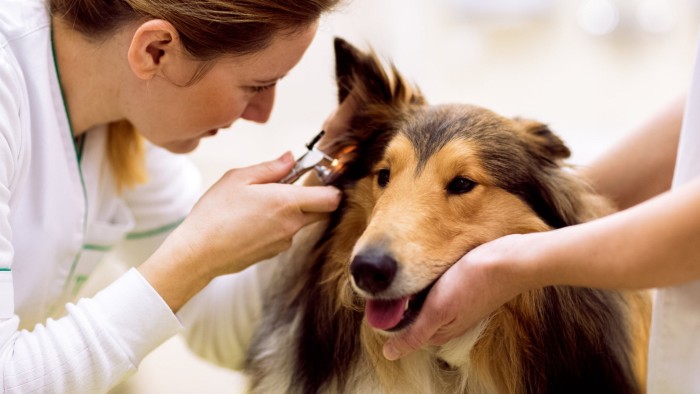Unlock the Editor’s Digest for free
Roula Khalaf, Editor of the FT, selects her favourite stories in this weekly newsletter.
Vets could be banned from setting financial incentives that influence how pets are treated, as the UK’s main consumer watchdog reviews measures to tackle soaring prices and weak competition in the sector.
The Competition and Markets Authority has been investigating the veterinary market amid concerns over the “roll-up” of thousands of small clinics by large companies and private equity forcing up the price of drugs and treatments.
The watchdog said on Thursday that it could ban “any practices . . . which limit vets’ clinical freedom to provide a choice of treatments suited to the pet owner and animal’s requirements”.
In a working paper outlining potential remedies, the CMA said that larger vets businesses have key performance indicators, including on how pet treatments are sold.
The CMA’s probe, launched last year, found that many vets reported feeling pressure to deliver on targets, however, only a few said that performance monitoring influenced their clinical decision-making.
Sixty per cent of veterinary practices are owned by large companies, up from 10 per cent in 2013, according to the watchdog.
Six vet chains — CVS Group, IVC Evidensia, Pets at Home, VetPartners, Medivet and Linnaeus — have bought 1,500 of the UK’s 5,000 practices over the past decade.
The watchdog also said it was considering introducing a freeze on prescription fees and medicine prices, after it found that businesses were adding huge mark-ups on medicines, sometimes up to three or four times the purchase cost.
Pet treatment prices increased by more than 60 per cent between 2015 and 2023, compared with general inflation for services of 35 per cent, according to CMA research.
From its consultations with the sector and pet owners over the past year, the watchdog found there was a lack of transparency around treatment options and costs for consumers.
The CMA concluded that few pet owners are aware that they could purchase prescriptions for considerably less online.
The watchdog suggested creating a comparison website for veterinary treatments, or making it compulsory for clinics to inform owners if cheaper prescriptions are available elsewhere.
It said that a provisional report on what measures it would take will be published this summer, with a final decision by November this year.




